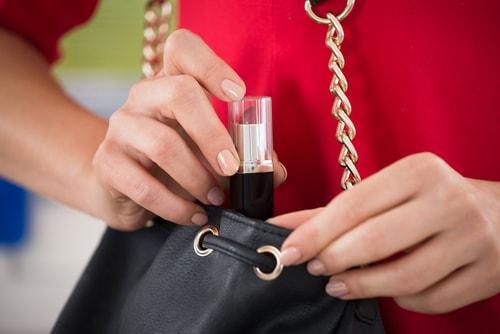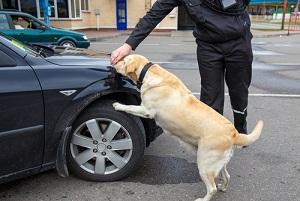Recent Blog Posts
Illinois Medical Marijuana Program Set to Run Through June 2020
 In 2013, Illinois lawmakers—led by State Representative Lou Lang, D-Skokie—passed legislation to create an experimental medical marijuana program in the state. The Compassionate Use of Medical Cannabis Pilot Program Act was signed by then-Governor Pat Quinn so that state officials could determine the effectiveness of allowing marijuana to be used in the treatment of certain illnesses and ailments. Supporters of the program were excited by the idea that eligible patients could get relief without fear of prosecution on charges related to the possession or consumption of marijuana.
In 2013, Illinois lawmakers—led by State Representative Lou Lang, D-Skokie—passed legislation to create an experimental medical marijuana program in the state. The Compassionate Use of Medical Cannabis Pilot Program Act was signed by then-Governor Pat Quinn so that state officials could determine the effectiveness of allowing marijuana to be used in the treatment of certain illnesses and ailments. Supporters of the program were excited by the idea that eligible patients could get relief without fear of prosecution on charges related to the possession or consumption of marijuana.
Good Intentions
As a pilot program, the initial medical marijuana measure contained a sunset clause, meaning that the law would automatically be repealed four years after it went into effect on January 1, 2014. If the program was a success, new legislation would be needed to make it permanent.
Northbrook Couple Sentenced in Shoplifting Ring Case
 When you think about shoplifting, there is a good chance you picture an individual surreptitiously sneaking an item or two under his or her jacket or into a handbag. This type of retail theft certainly does occur and retailers lose billions of dollars each year to small-time shoplifters. Sometimes, however, shoplifting can be a much bigger operation—even rising to the level of organized crime. Such was the case involving a seemingly well-to-do couple living on Chicago’s North Shore, as they were recently sentenced in federal court for running a large-scale retail theft ring.
When you think about shoplifting, there is a good chance you picture an individual surreptitiously sneaking an item or two under his or her jacket or into a handbag. This type of retail theft certainly does occur and retailers lose billions of dollars each year to small-time shoplifters. Sometimes, however, shoplifting can be a much bigger operation—even rising to the level of organized crime. Such was the case involving a seemingly well-to-do couple living on Chicago’s North Shore, as they were recently sentenced in federal court for running a large-scale retail theft ring.
Federal Investigation
According to court records, federal authorities followed the couple as they, along with their children, embarked on a four-day, multi-state stealing spree. The couple reportedly went into stores like Toys R Us, Barnes & Noble, and Starbucks, coming out with the wife’s dress “seemingly bursting at the seams,” as she attempted to hide stolen merchandise. The husband, wife, and their eldest daughter were arrested in March of 2014. In 2015, they reached a plea agreement with federal authorities in which they admitted to stealing more than $9.5 million in merchandise over the last 12 years.
Retailer Falsely Accuses Girls of Shoplifting on Social Media
 Shoplifting, along with other forms of retail theft, cost retailers billions of dollars each year. It is perfectly reasonable for retail companies to take serious measures in protecting themselves from these types of losses. Sometimes, however, overzealous store personnel can focus their attention on the wrong individuals—people who have done nothing but come into the store to shop. A recent example in the Chicago suburb of Algonquin demonstrates how problematic false accusations of shoplifting can be, especially when social media becomes involved.
Shoplifting, along with other forms of retail theft, cost retailers billions of dollars each year. It is perfectly reasonable for retail companies to take serious measures in protecting themselves from these types of losses. Sometimes, however, overzealous store personnel can focus their attention on the wrong individuals—people who have done nothing but come into the store to shop. A recent example in the Chicago suburb of Algonquin demonstrates how problematic false accusations of shoplifting can be, especially when social media becomes involved.
Targeting a 12-Year Old
Late last month, a 12-year-old girl and her 13-year-old friend were dropped off at the Target location in Algonquin, Illinois, to do some Christmas shopping. According to reports, the girls walked around the store for about an hour and a half, and each of them bought a few things. The girls say that a little while after they made their purchases—while they were waiting for their ride—store employees began following them. The 12-year-old told news outlets that one the employees accused them of shoplifting and told them to put back the items in their bags.
Cook County Program Helps Non-Violent Offenders Avoid Conviction
 Over the last three decades or so, the approach to crime in the United States has changed dramatically. In the past, communities have tried to fight criminal behavior with harsh penalties and long prison sentences. While the overall crime rate in the United States is lower than it was 20 or 30 years ago, the hardline approach to crime has—in the eyes of many—only served to fill our prisons and perpetuate a criminal lifestyle among convicted offenders. In an effort to stop the cycle of crime, Cook County introduced a program in 2011 that allows certain individuals accused of shoplifting, retail theft, and certain other non-violent crimes to avoid a conviction and prevent them from falling into a criminal lifestyle.
Over the last three decades or so, the approach to crime in the United States has changed dramatically. In the past, communities have tried to fight criminal behavior with harsh penalties and long prison sentences. While the overall crime rate in the United States is lower than it was 20 or 30 years ago, the hardline approach to crime has—in the eyes of many—only served to fill our prisons and perpetuate a criminal lifestyle among convicted offenders. In an effort to stop the cycle of crime, Cook County introduced a program in 2011 that allows certain individuals accused of shoplifting, retail theft, and certain other non-violent crimes to avoid a conviction and prevent them from falling into a criminal lifestyle.
Deferred Prosecution Program
The Cook County State’s Attorney’s Office developed the Deferred Prosecution Program (DPP) as an alternative to traditional conviction and sentencing for adults charged with certain felonies. As a diversionary program, the DPP is intended to address the issues that led the person to commit the offense and to help them modify their behavior to avoid future crimes. To be considered for Deferred Prosecution, a criminal suspect must:
Cook County Prosecutor Announces Change to Felony Charges for Shoplifting
 Retail theft in the form of shoplifting is one of the most common crimes in the United States. It occurs so often that many retailers frequently do not even report incidents to the police because full participation in every alleged shoplifter’s prosecution would be impossible. Of course, when a shoplifter steals merchandise of a particularly high value, retailers are more likely to stay involved. According to Illinois law, stealing retail merchandise valued at $500 or more may constitute a felony offense. A recent announcement by Chicago’s top prosecutor, however, indicates that a significant change is coming regarding how Cook County will pursue felony charges for shoplifting.
Retail theft in the form of shoplifting is one of the most common crimes in the United States. It occurs so often that many retailers frequently do not even report incidents to the police because full participation in every alleged shoplifter’s prosecution would be impossible. Of course, when a shoplifter steals merchandise of a particularly high value, retailers are more likely to stay involved. According to Illinois law, stealing retail merchandise valued at $500 or more may constitute a felony offense. A recent announcement by Chicago’s top prosecutor, however, indicates that a significant change is coming regarding how Cook County will pursue felony charges for shoplifting.
New $1,000 Threshold
This past November, Kim Foxx was elected to serve as the Cook County State’s Attorney after beating the incumbent Anita Alvarez in March’s Democratic primary. As one of her first major policy decisions, Foxx announced in December that she was amending prosecution guidelines for retail theft charges in Cook County. According to the Chicago Tribune, she has instructed county prosecutors that charges for retail theft, including shoplifting, should remain misdemeanors unless the value of the stolen property exceeds $1,000 or the defendant has 10 or more prior felony convictions.
A New Approach to the Prosecution of Marijuana
 In June 1971—following the cultural and sexual revolutions of the 1960s—President Richard Nixon declared war on drugs. Over the next several years, the Nixon administration dramatically increased the size and scope of federal anti-drug agencies and began pushing for harsh sentences for even non-violent drug offenders. In the decades since, the United States government and others around the world have continued to fight against drugs, locking up millions and creating a thriving black market for illegal substances of all kinds. In many states, including Illinois, a person can be arrested just for riding in the same car as a person in possession of drugs.
In June 1971—following the cultural and sexual revolutions of the 1960s—President Richard Nixon declared war on drugs. Over the next several years, the Nixon administration dramatically increased the size and scope of federal anti-drug agencies and began pushing for harsh sentences for even non-violent drug offenders. In the decades since, the United States government and others around the world have continued to fight against drugs, locking up millions and creating a thriving black market for illegal substances of all kinds. In many states, including Illinois, a person can be arrested just for riding in the same car as a person in possession of drugs.
Time for Change
After 45 years, however, there is growing pressure throughout the country for a new approach to America’s drug concerns. Perhaps the most telling indication of the evolution that is taking place is the national attitude toward marijuana. While the federal Drug Enforcement Agency continues to consider marijuana a Schedule I drug under the Controlled Substances Act—alongside drugs like heroin and LSD—individual states are taking action on their own. A Schedule I drug is one that has no currently accepted medical use, yet 28 states and the District of Columbia have created legal medical marijuana programs. Following this year’s general election, there are even six states that have legalized recreational use of the drug.
Drug Possession Basics, Part 2: What a Person Knows
 In last week’s post on this blog, we talked a little bit about the two different types of drug possession. We discussed that actual possession refers to having illegal drugs on your person or in your immediate vicinity while constructive possession refers to the presence of illegal drugs in your home or car. The difference in the two types of possession is a key point in determining whether you could face criminal consequences if a guest or passenger brings illegal drugs into your home or car, but it is not the only consideration. Your knowledge of the situation is also a factor; you cannot stop what you do not know is happening.
In last week’s post on this blog, we talked a little bit about the two different types of drug possession. We discussed that actual possession refers to having illegal drugs on your person or in your immediate vicinity while constructive possession refers to the presence of illegal drugs in your home or car. The difference in the two types of possession is a key point in determining whether you could face criminal consequences if a guest or passenger brings illegal drugs into your home or car, but it is not the only consideration. Your knowledge of the situation is also a factor; you cannot stop what you do not know is happening.
Knowledge of the Drug’s Presence
The Illinois Controlled Substance Act provides that it is illegal for a person to knowingly possess a prohibited substance. “Knowingly,” however, is very important part of the law. In seeking a conviction, prosecutors must prove beyond a reasonable doubt that you knew that the drugs were present, whether they were found in your car, your home, or in a purse or backpack. Depending upon the situation, proving your knowledge can be very difficult.
Drug Possession Basics, Part 1: Actual and Constructive Drug Possession
 If you have ever watched the reality/documentary show COPS, you have probably heard many of the typical claims a suspect often makes when he or she is found to be in possession of what looks like illegal drugs. “That’s not mine,” “I have no idea where that came from,” or “My friend must have left that in my car.” While such excuses ring extremely hollow, there may be situations in which the driver of a vehicle is not aware that one of his or her passengers has cocaine or ecstasy in his or her possession. (Possession of up to 10 grams of marijuana was recently decriminalized in Illinois, making marijuana a less likely candidate for this type of case.) If you are a driver in such a situation, could you be responsible for the drugs your friend is carrying?
If you have ever watched the reality/documentary show COPS, you have probably heard many of the typical claims a suspect often makes when he or she is found to be in possession of what looks like illegal drugs. “That’s not mine,” “I have no idea where that came from,” or “My friend must have left that in my car.” While such excuses ring extremely hollow, there may be situations in which the driver of a vehicle is not aware that one of his or her passengers has cocaine or ecstasy in his or her possession. (Possession of up to 10 grams of marijuana was recently decriminalized in Illinois, making marijuana a less likely candidate for this type of case.) If you are a driver in such a situation, could you be responsible for the drugs your friend is carrying?
There is not a simple answer to that question. As with most areas of the law, it depends entirely on the circumstances of the situation. Important elements include where the drugs are being carried or hidden and whether you really did know that drugs were present in your car. Over the next few weeks, we will look at the factors that can affect a drug possession charge, helping you get the information you need to protect your rights.
McHenry County Man Suing Police, Alleging Illegal Search
 According to the Fourth Amendment to the U.S. Constitution, all American citizens have the right to be free from unreasonable search and seizures conducted by the government—generally in the form of law enforcement officers. Since the amendment was ratified—along with the other nine amendments that comprise the Bill of Rights—in 1791, what constitutes “unreasonable searches and seizures” have been constant issues in the American court system. The issue is now being raised again by a man from McHenry County who was arrested following a search that found 17 pounds of marijuana in his vehicle, as he has filed a federal lawsuit alleging the search was illegal and that officers on the scene falsified their reports to justify the warrantless search.
According to the Fourth Amendment to the U.S. Constitution, all American citizens have the right to be free from unreasonable search and seizures conducted by the government—generally in the form of law enforcement officers. Since the amendment was ratified—along with the other nine amendments that comprise the Bill of Rights—in 1791, what constitutes “unreasonable searches and seizures” have been constant issues in the American court system. The issue is now being raised again by a man from McHenry County who was arrested following a search that found 17 pounds of marijuana in his vehicle, as he has filed a federal lawsuit alleging the search was illegal and that officers on the scene falsified their reports to justify the warrantless search.
Search, Arrest, and Charges
In late August, a 31-year-old man was pulled over in Woodstock for an expired registration. According to reports, the officer asked the driver if he would wait and allow a drug-sniffing dog to sniff around the vehicle. The man reportedly refused, yet the officer told the driver that he could not yet leave. A second officer arrived with the dog and the dog was run around the car. The dog indicated the presence of drugs and the police found a duffel bag containing about 17 pounds of marijuana in the trunk.
Probable Cause and Search Warrants in Illinois
 A large number of criminal cases—particularly those involving illicit drugs or illegal firearms—hinge on the evidence seized by law enforcement during searches. A police search of your property, including your home or car, with very few exceptions, requires one of two things: your voluntary consent or a properly obtained search warrant issued by a judge. It is almost never a good idea for you to allow a warrantless search of your property to proceed. At the same time, if the police have obtained a search warrant, you must be careful not to interfere with the search.
A large number of criminal cases—particularly those involving illicit drugs or illegal firearms—hinge on the evidence seized by law enforcement during searches. A police search of your property, including your home or car, with very few exceptions, requires one of two things: your voluntary consent or a properly obtained search warrant issued by a judge. It is almost never a good idea for you to allow a warrantless search of your property to proceed. At the same time, if the police have obtained a search warrant, you must be careful not to interfere with the search.
How Is a Search Warrant Issued?
According to the Illinois Constitution and Criminal Code, a search warrant can be issued by a judge on the basis of probable cause. Unlike many other states, Illinois allows a warrant to be issued “upon the written complaint of any person under oath or affirmation.” This means that a judge does not need to wait for a sworn affidavit from a law enforcement officer. Any private citizen can provide a sworn statement that identifies the person and/or place that should be searched and things that should be seized.





 773-276-5541
773-276-5541










